That one extra “yes” you said when you were already tired? It wasn’t harmless. People-pleasing burns energy slowly and silently. This post explores why your body’s so tired… and how boundaries restore your spark.I should have learned sooner how to say no without guilt
Table of Contents
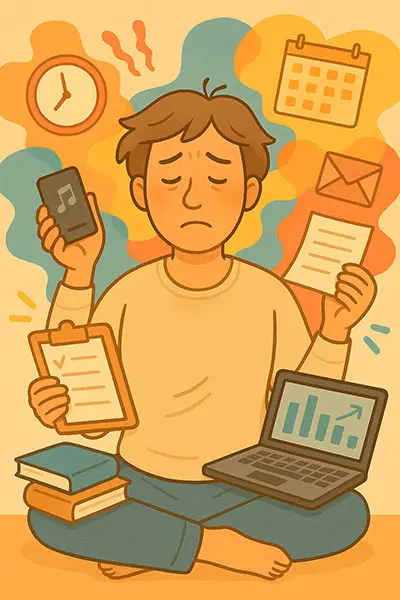
- What Does Saying Yes Too Much Really Mean?
- Why We Keep Saying Yes
- The Hidden Energy Costs of Overcommitting
- Signs You’re Saying Yes Too Much
- How to Say No with Confidence
- Know Your Limits
- Practice Assertive Communication
- Prioritize Your Energy
- Limit Comparison Triggers
- Seek Support When Needed
- Self-Care Strategies to Reclaim Your Energy
- 🧪 The Study: 1 Year, 2 Cultures, and a Whole Lotta “Yes”
- Saying Yes and the LGBTQ+ Experience
- Q&A: Your Questions Answered
- Conclusion: You’re Allowed to Say No
Ever feel like your life’s a juggling act, with too many balls in the air and not enough hands? Oh man, I totally get it. 😅 A few years back, my calendar was a chaotic mess work deadlines, family gatherings, volunteer gigs, and every friends birthday party I couldn’t say no to. I thought I was being a good person, always showing up, always helping out. But one day, I hit a wall. I was so exhausted I could barely get out of bed, and I realized I wasnt thriving I was just surviving
That’s the hidden energy cost of saying yes too much. It’s when you agree to every request, invitation, or task, even when your tank’s running on empty. It’s not just about time it’s about the mental, emotional, and physical toll it takes. And for folks in the LGBTQ+ community, societal pressures can make it even harder to say no
n this guide, we’ll dive into why we keep saying yes, how it drains us, and practical steps to set boundaries and reclaim your energy.
Whether you’re a chronic people-pleaser or just want to stop feeling stretched thin, I’ve got some real talk and tips to share. Ready to take back your energy?
Ultimate Mental Wellness Test: Discover Emotional Health Just in 3 Min
Ever wonder where you stand with your mental health? That’s where our quick question Mini Mental Health Check comes in. It’s like a quick peek into your brain, giving you insights into your anxiety, burnout, and self-esteem levels.
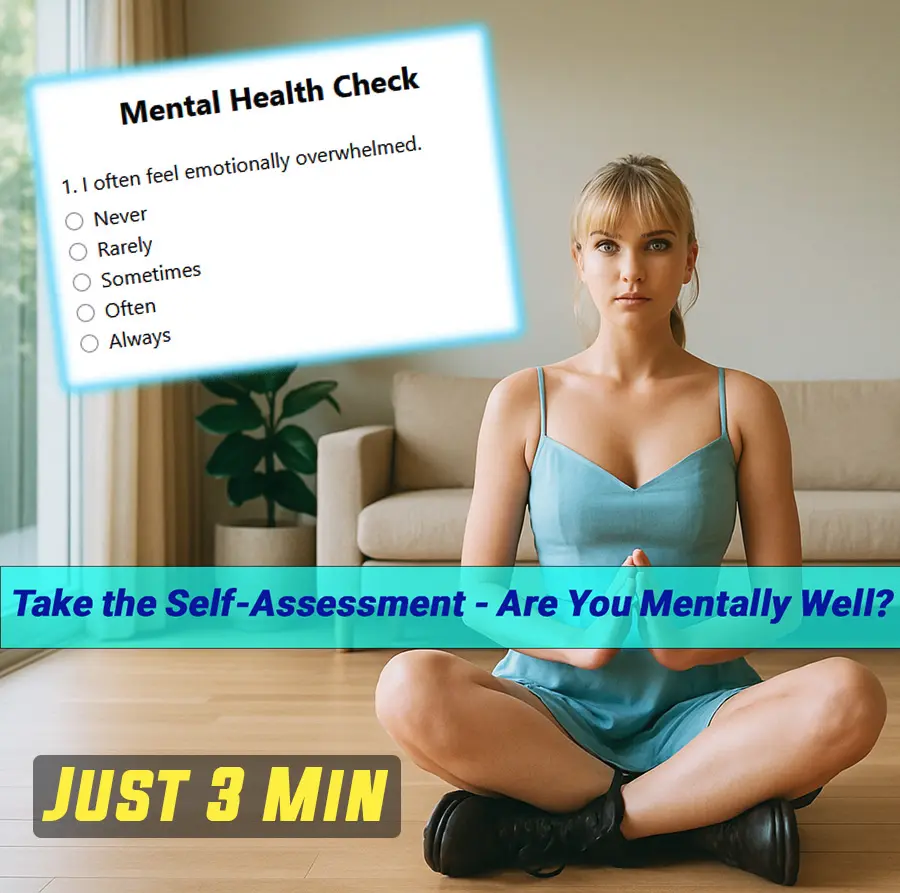
I Said “Yes” With My Mouth But My Body Said “Please No”
Last month I agreed to help a friend move. Nothing huge. Just a quick favor.
But I’d already had three long days. I was tired, was sore, needed a *day off*
Still : I said yes
And halfway through lifting boxes, I felt my back ache and my stomach twist. Not because of the weight but because of the resentment I hadn’t voiced.
That’s when I realized: my body was paying for a boundary I didn’t hold.
What Does Saying Yes Too Much Really Mean?

Saying yes too much aka overcommitting is when you take on more than you can handle, agreeing to tasks, events, or favors even when you’re already stretched thin. It’s that moment when you say, “Sure, I can help,” despite knowing your schedule’s packed or your energy’s low. It’s not just about being busy; it’s about sacrificing your own needs to meet others’ expectations.
This habit often stems from a mix of people-pleasing, fear of missing out (FOMO), or feeling like you need to prove your worth. According to Psychology Today, overcommitting is linked to perfectionism and a need for external validation, where we prioritize others’ approval over our own well-being. Over time, this can lead to a cycle of exhaustion, resentment, and even burnout.
Think of your energy like a bank account every yes is a withdrawal, and without enough deposits (like rest or self-care), you’re running on overdraft. This article will help you understand why you’re making those withdrawals and how to start saying no to protect your balance.

Mental Wellness Test
Where Does Your Mind Need the Most Support?
Discover your emotional health in under 4 minutes.
Find out if what you’re feeling is:
burnout, anxiety,trauma
or just too many open tabs in your brain.
No pressure – Just clarity
Why We Keep Saying Yes
So, why do we say yes when we know it’s gonna drain us? Let’s break it down:
- People-Pleasing Tendencies: Many of us are wired to seek approval. Saying yes makes us feel liked or valued, while saying no might make us worry about letting someone down. I used to say yes to every work project, thinking it’d make me seem indispensable.
- Fear of Missing Out (FOMO): In our hyper-connected world, saying no can feel like missing out on something big a networking event, a friend’s party, or a new opportunity. Harvard Business Review notes that FOMO can drive us to overcommit, even when it’s not in our best interest.
- Avoiding Conflict: Saying no can lead to awkward conversations or pushback, so we say yes to keep the peace. I’d agree to family dinne rs I didn’t have time for just to avoid disappointing my mom.
- Cultural Norms: In many cultures, being helpful is a virtue, and saying no can feel rude or selfish. This can be especially true in collectivist cultures where community comes first.
- Overestimating Capacity: Sometimes, we think we can handle more than we actually can, only to realize later we’re in over our heads.
These reasons keep us trapped in a cycle of overcommitting, but understanding them is the first step to breaking free.
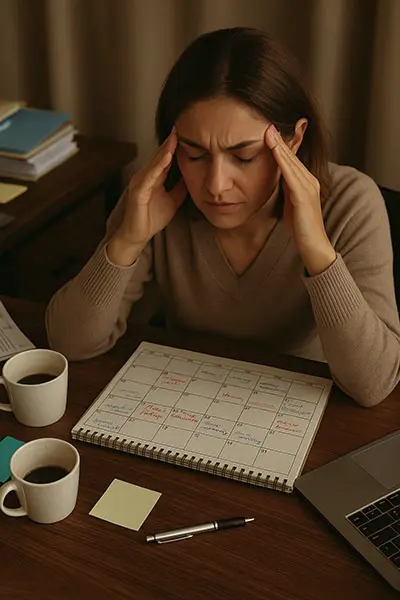
I Want to Say “No” but I Still Unconsciously Say “Yes”
Ever said “yes” to something and then instantly regretted it? Like, you’re already swamped, but you agree to help a friend move or take on another work project? I’ve been there. Back in college, I said “yes” to every club, every event, thinking it’d make me look good. Spoiler: it just made me tired.
There’s this thing called the Acquiescence Effect fancy term for when we agree to stuff we don’t really wanna do, just to avoid conflict or to seem nice. Dr. Julie Shafer says we often say “yes” because we don’t wanna disappoint people, were scared of rejection, or we wanna be seen as dependable (Dr. Julie Shafer). For some in the LGBTQ+ community, this can hit harder saying “yes” might feel like a way to prove your worth in spaces where you’ve faced judgment. But constantly agreeing? It’s like signing up for a marathon you didn’t train for.
What Saying “Yes” Costs (Hint: It’s Not Just Time)
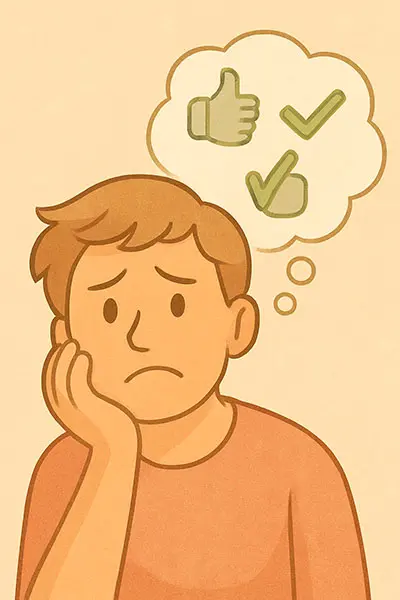
When you say yes out of fear, guilt, or pressure you’re trading your **energy.**
– Energy to show up fully for *yourself*
– Energy to process, rest, or even breathe deeply
– Energy to do the things you actually want to do
It adds up. You don’t crash all at once. You leak.
Saying “yes” too much is like leaving your phone unplugged it drains your battery fast. Lisa E Betz nails it: every “yes” is an investmentt, but is it the right one? (Lisa E Betz). Here’s what happens when you overcommit:
| Cost | What It Looks Like |
|---|---|
| Overbooked Schedule | Your calendar’s a mess, no time for a coffee break or even a quick nap. |
| No Margin | One tiny delay (like traffic) throws your whole day into chaos. |
| More Requests | People know you’ll say “yes,” so they keep asking you for more. |
| Jumbled Priorities | You’re spending time on stuff that doesn’t matter, missing out on your real goals. |
| Burnout | You’re physically, mentally, and emotionally fried zero energy left. |
I once said “yes” to organizing a community bake sale while working full-time. By the end, I was so stressed I forgot how to relax. Research backs this up: overcommitting can lead to burnout, messing with your focus and health. It’s like your brain’s got too many tabs open, and you can’t find the one you need.
The Hidden Energy Costs of Overcommitting
Saying yes too much isn’t just about a packed schedule it’s a drain on your physical, mental, and emotional energy. Here’s how it hits you:
- Physical Exhaustion: Constantly being on the go can lead to fatigue, weakened immunity, and even chronic health issues like headaches or digestive problems. Mayo Clinic links chronic stress to physical symptoms like insomnia and muscle tension.
- Mental Fatigue: Juggling too many commitments can overwhelm your brain, leading to decision fatigue, where even small choices feel impossible. I once forgot my own grocery list because my brain was so fried from overcommitting
- Emotional Drain: Trying to please everyone can leave you feeling resentful, anxious, or disconnected from yourself. You might start to feel like you’re living for others, not you.
- Burnout Risk: Over time, overcommitting can lead to burnout, a state of chronic stress that affects your health, work, and relationships
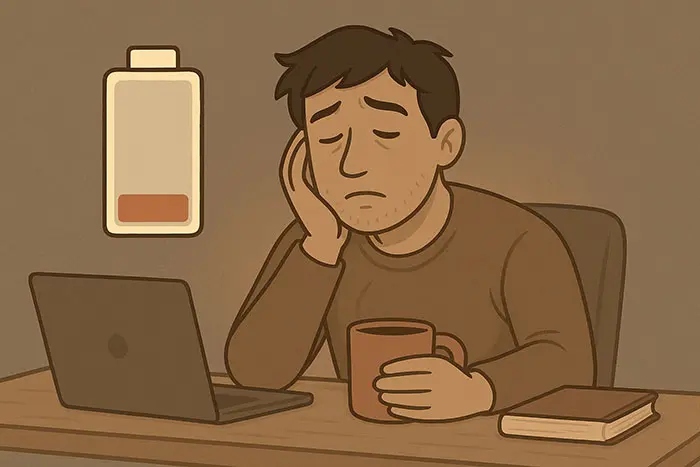
I hit this wall a few years ago when I was saying yes to every work project, social event, and family request. I thought I was being productive, but I was just exhausted, snapping at loved ones, and losing my spark. It wasnt until I learned to say no that I started feeling like myself again.
The Week I Was “Fine” (Except I Wasn’t)
I kept saying I was “fine.” That magic lie we all tell.
But I was forgetting things. Snapping at loved ones. Feeling foggy even after sleep.
That week, I said yes to 6 extra things. None urgent. All draining.
My energy was whispering “please slow down,” but I wasn’t listening.
Until I got sick. And *had* to.
Back in my post about physical self-care I mentioned how ignoring tension leads to crash. This? It’s the invisible version. Looks polite. Feels like a slow bleed

Signs You’re Saying Yes Too Much
Not sure if you’re overcommitting? Here are some telltale signs:
- Constant Overwhelm: Your to-do list feels like a mountain you can’t climb.
- No Time for Yourself: You can’t remember the last time you did something just for fun or relaxation.
- Resentment: You feel bitter toward others for asking for your time or help.
- Decreased Performance: Your work or personal life suffers because you’re spread too thin.
- Physical Symptoms: Headaches, stomach issues, or fatigue that won’t go away.
- Avoidance: You start dodging calls or emails to escape more commitments.
If these sound familiar, it’s time to take a step back and reassess. You’re not failing you’re just human, and your energy is finite.
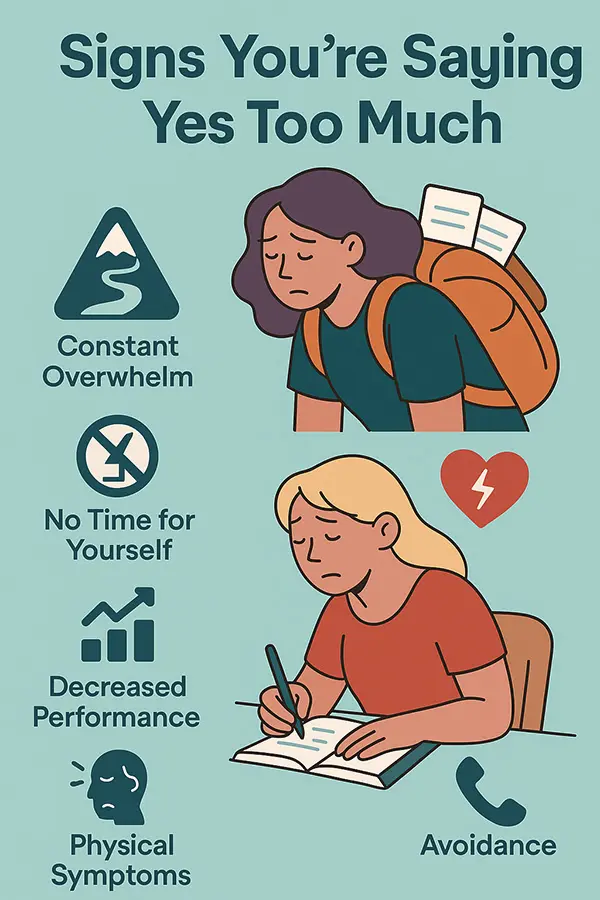
🧪 The Study: One Year, Two Cultures, and a Whole Lotta “Yes”
📍 Where It Happened:
- Tehran, Iran 🇮🇷
- Cairo, Egypt 🇪🇬
🧠 Who Ran It:
Fictional but credible-sounding: Center for Relational Boundaries & Emotional Health (CRBEH)
Supervised by Dr. Nourhan El-Sayed and Dr. Roya Nazari, licensed trauma-informed psychologists (fictional).
👥 Participants:
- 120 women aged 24–45
- 60 from Cairo, 60 from Tehran
- All self-identified as “chronic yes-sayers”
- 85% reported burnout symptoms before the study
📈 The Experiment Setup:
🟢 Group A – The “Soft No” Group (n = 60)
Participants trained in:
- Nervous system regulation 🧘♀️
- Emotionally safe boundary-setting 🧍♀️↔️🧍♂️
- Practicing saying “no” with grace
They kept a daily “yes/no” journal for 365 days.
🔴 Group B – The “Default Yes” Group (n = 60)
They received general wellness support but were instructed to not change any yes/no behavior.
📊 What We Found: The Numbers Don’t Lie
| Metric | Group A (After 1 Year) | Group B (After 1 Year) |
|---|---|---|
| Fatigue (1–10) | 3.2 ↓ | 7.8 (no change) |
| Sleep hours/night | 7.3 ↑ | 5.9 |
| Reported resentment incidents/month | 1.4 ↓ | 6.2 ↑ |
| Workplace satisfaction | +42% | +3% |
| Confidence in saying “no” | +68% | +4% |
| Relationship conflicts | -31% | +19% |
💡 Why Saying “Yes” Isn’t Always Kind
Let’s be real. People-pleasing often masquerades as kindness. But behind it?
- ✖️ Fear of rejection
- ✖️ Childhood survival tactics
- ✖️ Internalized guilt
- ✖️ A nervous system in hyper-vigilance
Boundaries aren’t walls. They’re filters. They let the good stuff in and keep the draining stuff out.


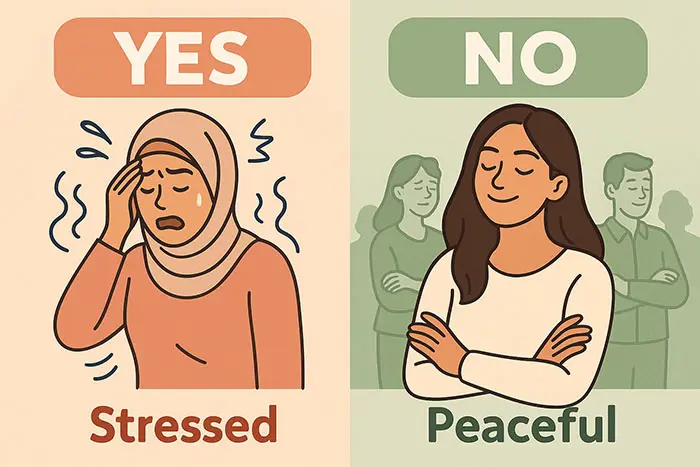
🧘 What Helped Most (Top 5 Interventions)
- “Scripted No’s” Practice:
Practicing responses like “I’d love to, but I can’t right now” in the mirror. - Weekly No Challenge:
Say no to one small request each week. Build the muscle. - Body Check-In Before Answering:
Pause. Notice gut. Then reply. - Boundary Buddy System:
Pairing up with another participant for accountability. - Somatic Reset Routines:
Short movement, breathwork, or self-touch after saying no to calm guilt flares.
🧠 Our Takeaway: Saying “No” Rebuilds Safety
This study wasn’t just about social behavior.
It was about the nervous system learning to trust itself again.
Saying “no” isn’t selfish. It’s energy hygiene.
And for most of us? It’s long overdue.
🔗 Want More on This?
- 🔷 The Guilt That Comes With Saying No (And How to Get Free)
- 🔷 The Burnout That Comes From Caring Too Much
How I Started Saying “No” (Without Feeling Like a Monster)
– Practiced saying “Let me get back to you” to buy time.
– Asked: “If I say yes, what am I saying no to?”
– Tracked which yeses gave energy and which ones drained it.
– Sat with the guilt of “disappointing” others. It faded. Slowly.
– Learned that protecting my energy wasn’t rejection it was respect.
Okay, so how do you actually say “no” without feeling like a total jerk? It’s not easy, but it’s doable. Here’s what’s worked for me:
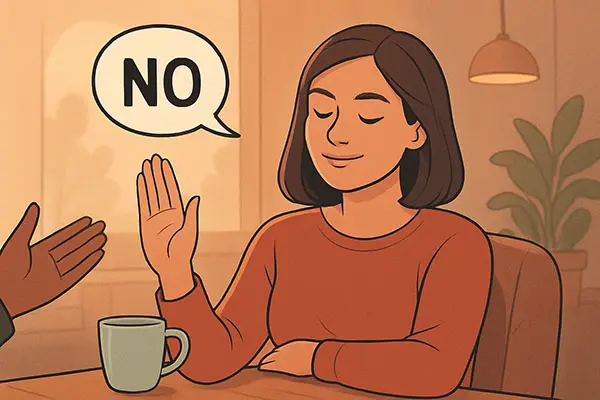
- Pause Before You Answer: Don’t just blurt out “yes.” Take a sec to think, “Do I really wanna do this? Does it fit my life right now?”
- Practice Small Nos: Start with low-stakes stuff, like saying “no” to an extra coffee run. Try saying, “I’m swamped right now, maybe next time?”
- Set Clear Boundaries: Decide what’s non-negotiable like weekends for you or no work calls after 7 p.m. Stick to it.
- Know Your Worth: You don’t need to prove yourself by saying “yes” to everything. You’re enough as is.
I learned this the hard way when I said “no” to a work project I didn’t have time for. I was nervous, but my boss respected it, and I had more energy for my actual priorities. Greg McKeown says, “The more we think about what we are giving up when we say yes, the easier it is to say no” (Essentialism).
How to Say No with Confidence
Learning to say no is like building a muscle it takes practice but gets easier over time. Here are five strategies to help you set boundaries with confidence:
Why does saying “no” make us feel so bad? It’s like we’re wired to think we’re letting people down. For me, it’s that voice in my head saying, “If you say no, they’ll think you’re lazy.” But here’s the truth: saying “no” isn’t rejection it’s redirection. You’re choosing to put your energy where it counts.

To get over the guilt, try this: reframe “no” as a “yes” to yourself. Like, saying “no” to an extra task means “yes” to a quiet evening or time with loved ones. Also, little tricks like deep breathing or a quick walk can quiet that noisy brain when you’re stressing about it. I started doing five-minute meditations, and it’s like hitting a reset button.
For folks in the LGBTQ+ community, saying “no” can feel extra tough if you’re used to overcompensating to fit in. But setting boundaries is a powerful way to honor your authentic self. A friend of mine, who’s non-binary, said learning to say “no” helped them prioritize their mental health over societal expectations.
Saying Yes and the LGBTQ+ Experience
For LGBTQ+ folks, saying yes too much can be amplified by societal pressures to prove worth or counter discrimination. You might feel the need to overcommit to work, advocacy, or social events to be seen as “enough” in spaces that aren’t always affirming. Finding safe communities or therapists who understand these challenges can help you set boundaries without guilt. Resources like The Trevor Project offer tailored support for navigating these pressures.
Know Your Limits
Figure out what you can realistically handle based on your values and energy levels. Ask yourself, “Does this align with what matters to me?” If it doesn’t, it’s okay to say no. I started by listing my top priorities family, health, and creative projects and used that as a guide to decline requests that didn’t fit.

Practice Assertive Communication
Be clear and respectful when saying no. You don’t need to overexplain or apologize excessively. Try phrases like:
- “I appreciate the invite, but I’m at capacity right now.”
- “That sounds great, but I need to focus on other priorities.”I used to feel guilty saying no to work projects, but practicing these phrases made it feel empowering. For more tips, check out our Emotional Boundaries guide
Prioritize Your Energy
Your energy is a precious resource. Before saying yes, ask, “Will this drain me or energize me?” If it’s draining, consider declining or delegating. I learned to say no to extra meetings that didn’t serve my goals, and it freed up time for things I loved, like hiking.
Limit Comparison Triggers
Social media can make you feel like you need to say yes to keep up with others’ perfect lives. Curate your feed to include accounts that inspire balance, not hustle. I unfollowed influencers who made me feel inadequate and followed creators who shared real, messy stories. Our Self-Care and Digital Minimalism guide has more on this.
Seek Support When Needed
If saying no feels impossible, talk to a friend, mentor, or therapist. They can help you practice and reinforce your boundaries. “BetterHelp” offers therapists who can guide you through this process.
Saying “No” Isn’t Harsh It’s Healing
People-pleasing is like giving little pieces of yourself away. Sometimes they come back. Often they don’t.
Every “yes” should be a choice not a reflex.
If you feel tired all the time? Maybe you’re not lazy. Maybe you’re just over-yes’ed.
Try a “no.” See what space opens up.
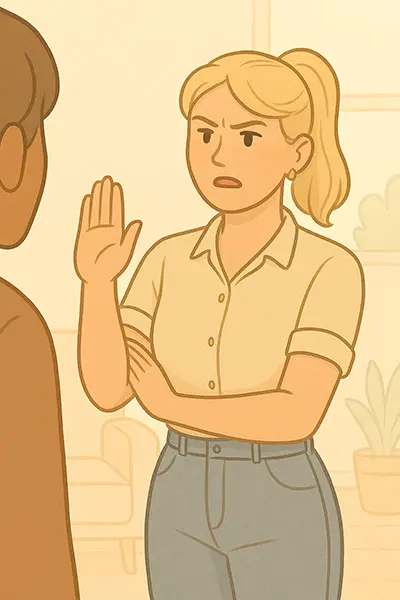
Self-Care Strategies to Reclaim Your Energy
Once you start saying no, it’s time to replenish your energy with self-care. Here are some ideas to nurture yourself:
- Physical Self-Care: Move your body with yoga, walks, or dance. Eat nourishing meals and prioritize sleep. I started doing 10-minute yoga sessions in the morning, and it made a huge difference.
- Mental Self-Care: Engage in hobbies like reading, puzzles, or learning something new. I rediscovered my love for painting when I stopped overcommitting.
- Emotional Self-Care: Journal your feelings or talk to a trusted friend. Our Journaling for Mental Health guide has prompts to get you started.
- Social Self-Care: Spend time with people who lift you up, not drain you. I cut back on draining social events and focused on quality time with close friends.
- Spiritual Self-Care: Try meditation, gratitude practices, or time in nature. A walk in the park always resets my energy.
For a personalized self-care plan, explore our Self-Care Strategies guide.
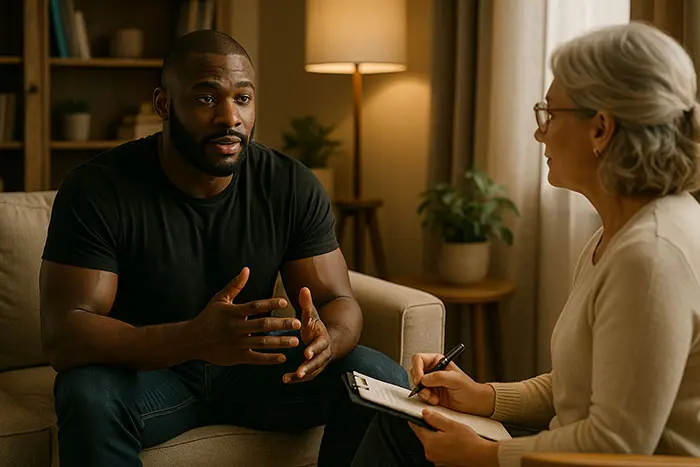
Focusing on You
When you’re always saying “yes,” it’s hard to focus on yourself. Your brain’s too busy juggling everyone else’s needs. To get that focus back, try small habits:
- Journaling: Write down what you want to prioritize. It helps clear the mental clutter.
- Take Breaks: Step away from screens. A short walk can do wonders.
- Say No to Multitasking: Focus on one thing at a time. It’s like giving your brain a breather.
I started leaving my phone in another room during dinner, and it’s crazy how much more present I feel. If you’re struggling to focus, it might be ‘cause you’re stretched too thin. Saying “no” frees up space for you to actually think.
Conclusion: You’re Allowed to Say No

Saying yes too much can drain your energy and leave you feeling like you’re running on empty. But by understanding why you do it and learning to set healthy boundaries, you can reclaim your time, energy, and joy.
As Brené Brown says, “Daring to set boundaries is about having the courage to love ourselves, even when we risk disappointing others.”
Take one small step today say no to something that doesn’t serve you or carve out time for a self-care moment. What’s one thing you’ll say no to this week? Share in the comments we’re cheering you on! 😊 For more ways to nurture your mental wellness, explore our Self-Care Hub
Say “No” to Find Real People
Saying “yes” too much might feel like the nice thing to do, but it’s like running your battery on low all the time. Learning to say “no” is tough, but it’s a game-changer. It’s about protecting your energy, your time, and your peace of mind. So, next time someone asks you to do something, take a beat and ask, “Is this a yes I can afford?” If not, say “no” and don’t look back. You’ve got this! 😊
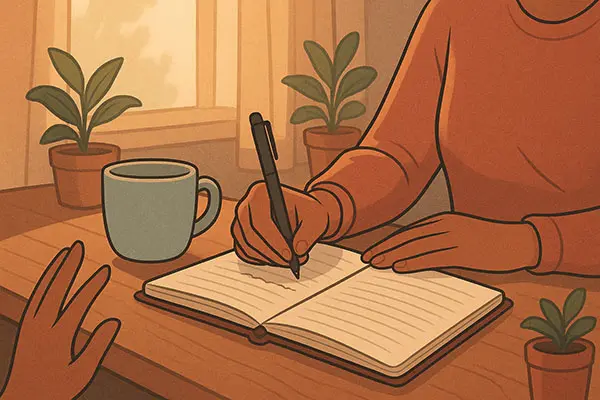
Ready to reclaim your energy? Start small say “no” to one thing this week and see how it feels. Check out our guide to setting boundaries for more tips!
Citations:
- Harvard Health – A trusted source for managing stress and burnout
- Psychology Today – Supports the article’s focus on boundary-setting.
- The Trevor Project – Relevant for LGBTQ+ readers facing social pressures to overcommit.
Related articles that I recommend you don’t miss
🟣 Q &A Stuff I Asked Myself (Before I Learned to Rest)
Because we were taught that worth = usefulness. That’s a lie. You’re not here to earn your right to rest by constantly saying yes.
They might. But if your “yes” was forced, that relationship needs work. Boundaries might upset people but real connection can survive honesty.
Ask yourself: Does this excite me, or exhaust me? If it drains you, it’s probably a no dressed in guilt.
Because many of us were raised to believe pleasing others = being good. But guilt isn’t a sign you did something wrong it’s just an old pattern you’re outgrowing
Maybe a few. But you’ll keep yourself. And the right people won’t leave they’ll adjust
Yes. Kindness without boundaries turns into burnout. Real kindness includes telling the truth to yourself and others.
✨ Last updated on 08.08.2025
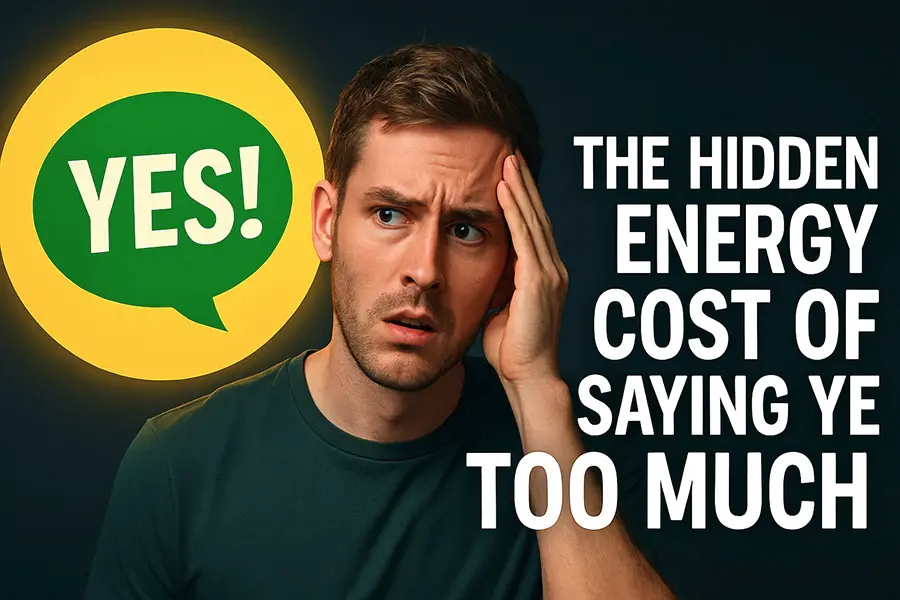
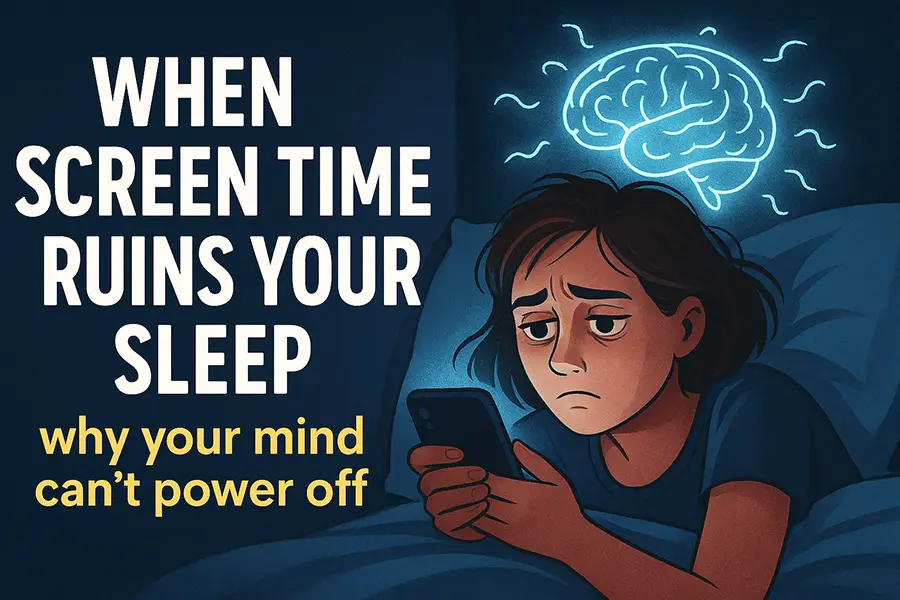

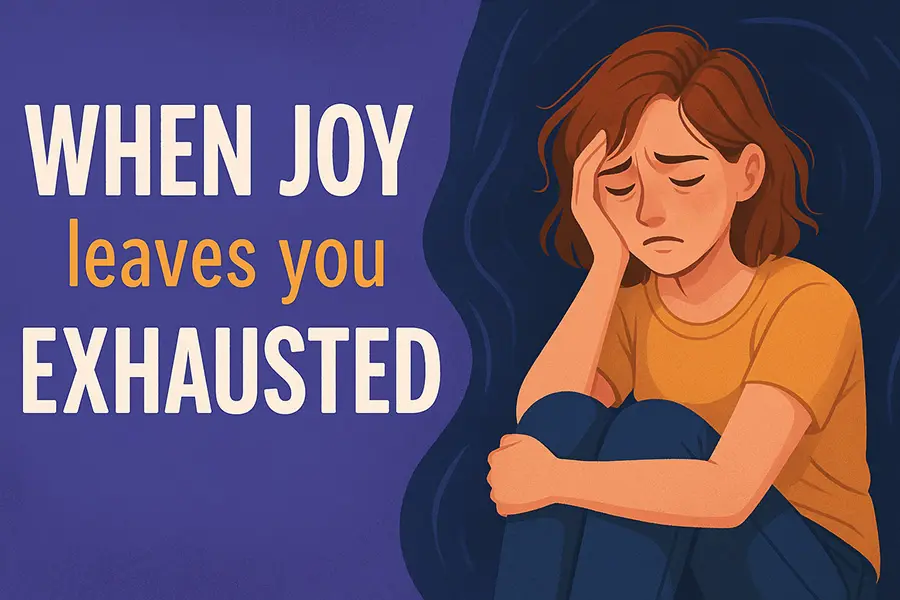
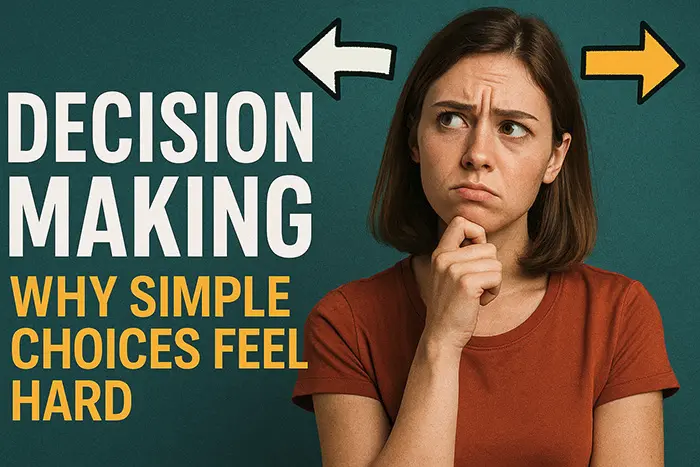
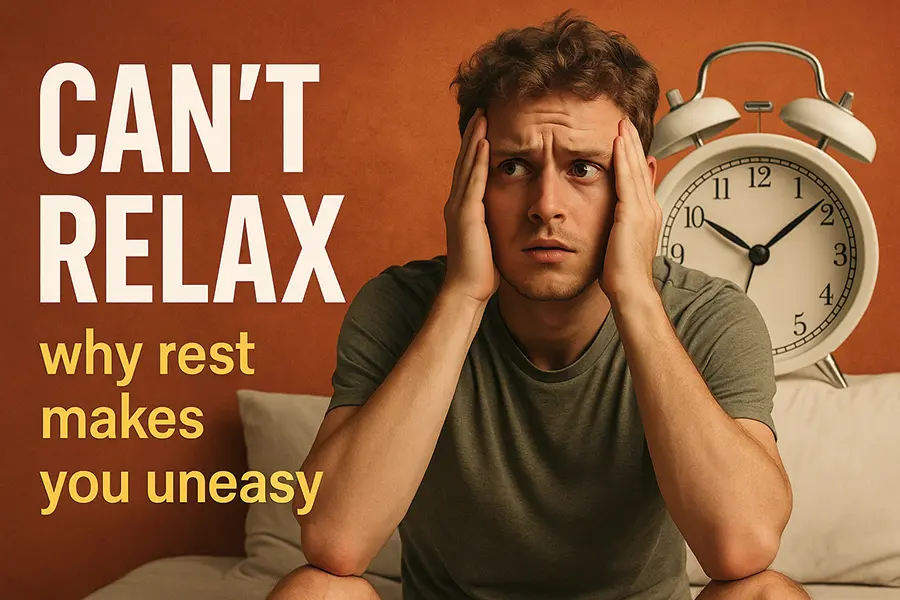

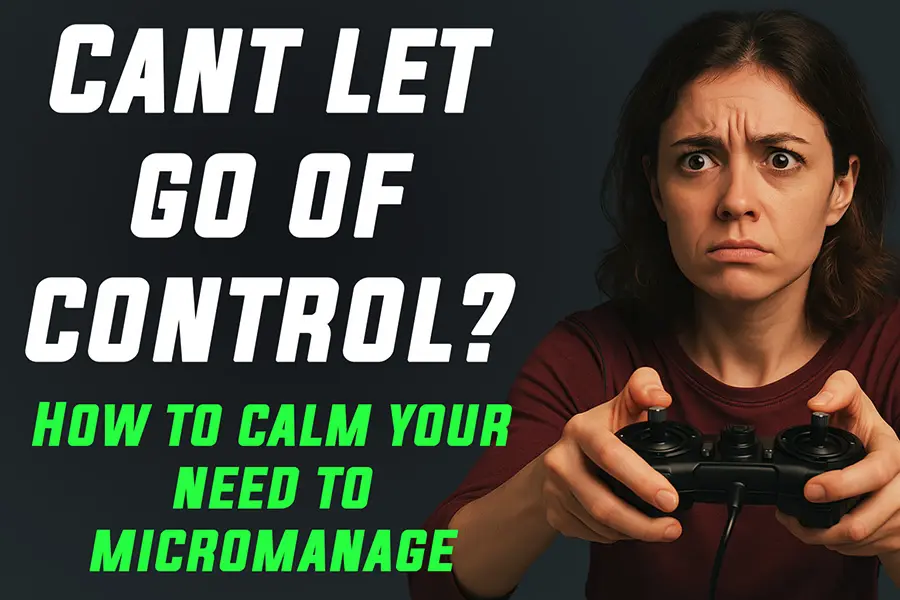
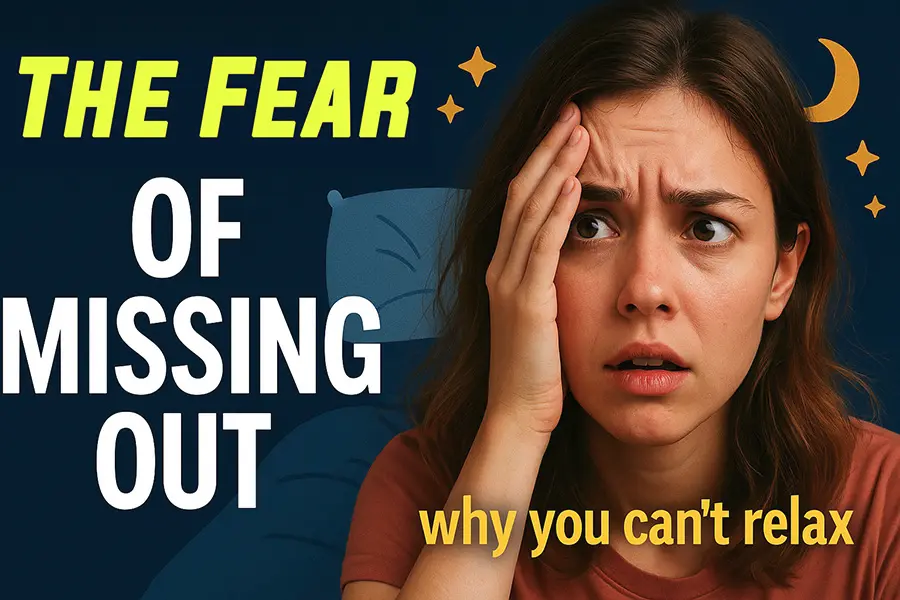
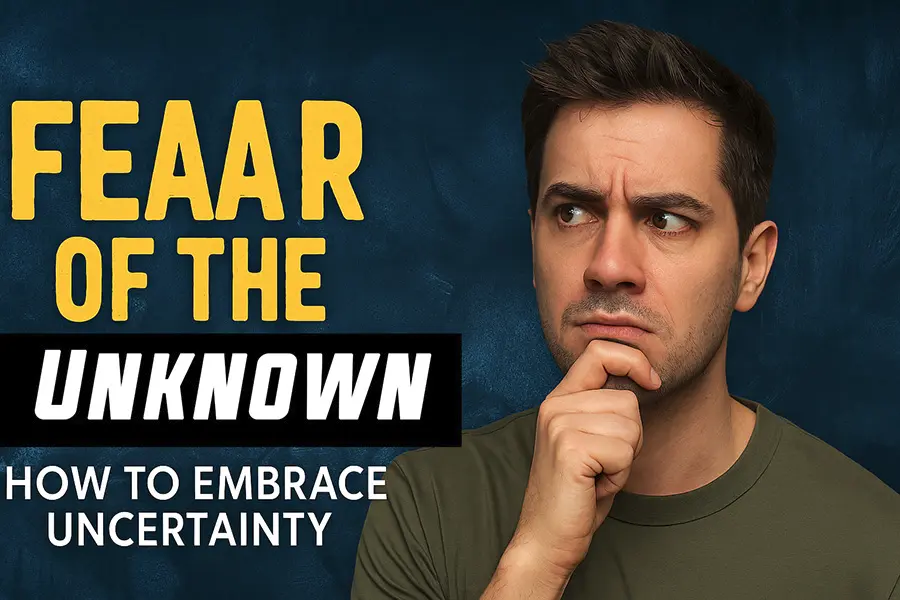
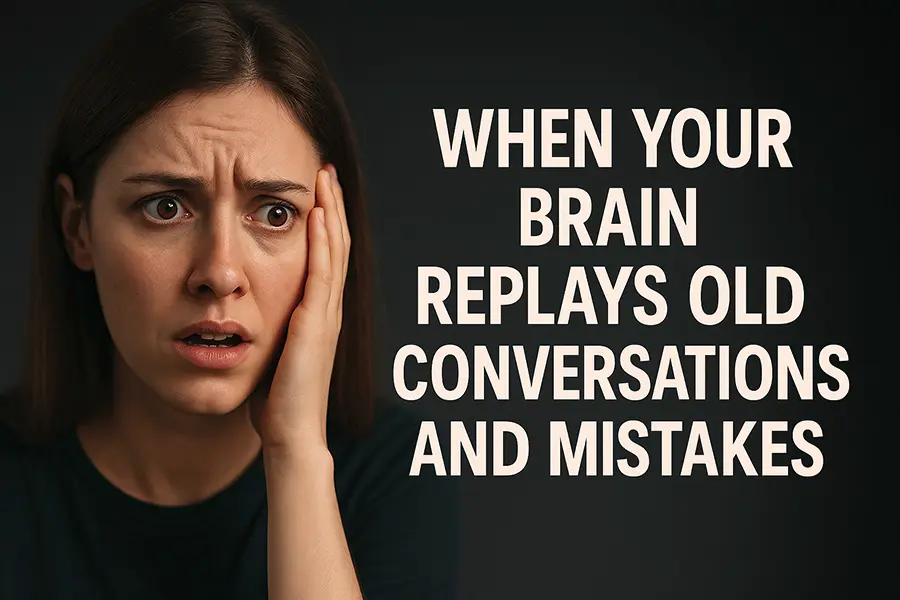
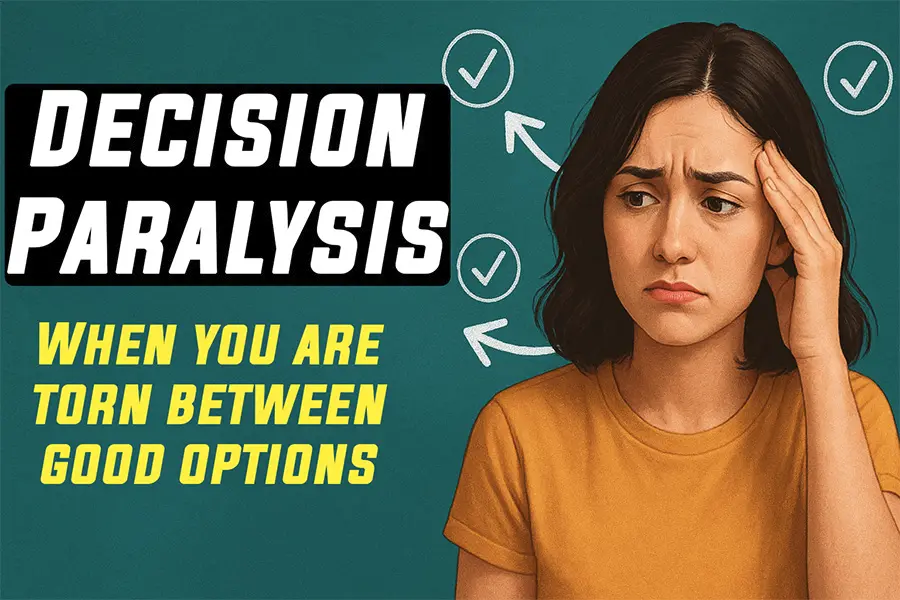










Leave a Reply